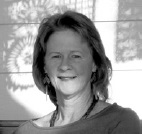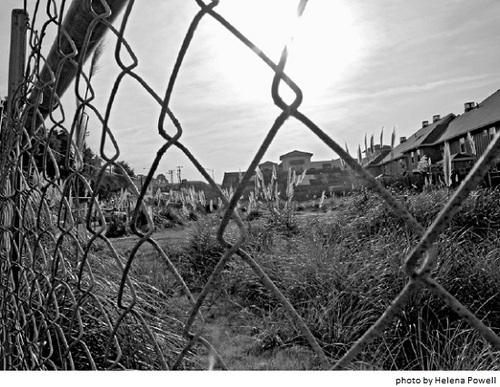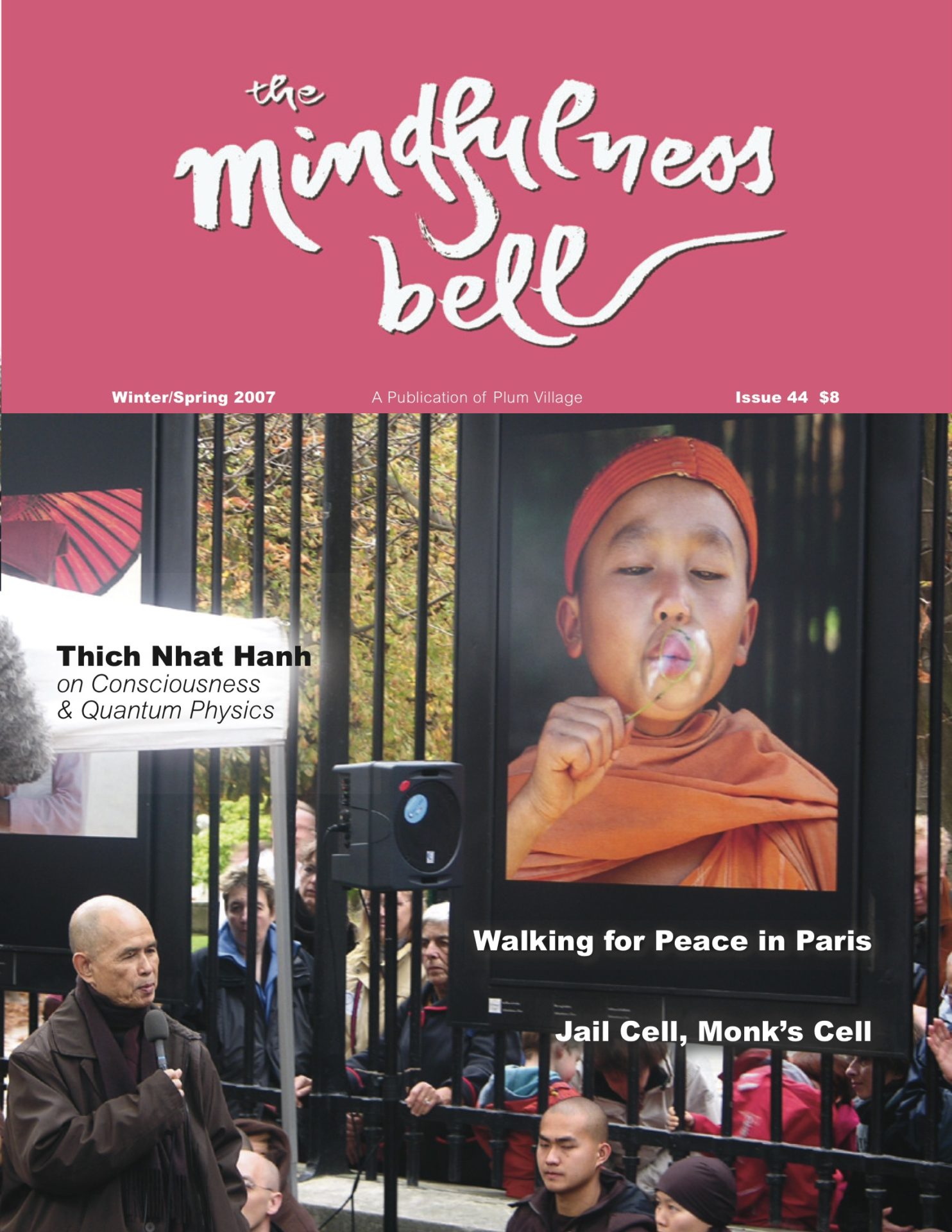
By Barbara Casey
For over six years Barbara corresponded with a prison inmate named Claude. He had been convicted of aggravated assault, which means that he did someone serious harm. In a letter to her, Claude asked Barbara for insight about karma, and she asked some dharma teachers to respond as well.
Barbara, there is something that I’ve been wanting to ask you concerning Buddhist teachings and I find this to be a good time to do so.

By Barbara Casey
For over six years Barbara corresponded with a prison inmate named Claude. He had been convicted of aggravated assault, which means that he did someone serious harm. In a letter to her, Claude asked Barbara for insight about karma, and she asked some dharma teachers to respond as well.
Barbara, there is something that I’ve been wanting to ask you concerning Buddhist teachings and I find this to be a good time to do so. I just hope that you’ll not think my question somewhat ignorant.

According to karma, as I understand it, if a person is unruly during his lifetime he’ll suffer as a result in some future life. It is my understanding that if someone causes a horrible death to another human being, he’ll also experience a similar death sometime in his future. My question is, if this is true, and I’m not sure that it is, if this person who committed the horrible crime is to experience something of the same, how is it to come about? In other words, and I use myself as an example, let us say that I committed the horrible deed and am supposed to experience the same. Is the person who causes me to experience the same type of death held responsible for doing so?
— Claude
Dear Claude,
It really touched me when I read your question about karma. First of all, I have to say that I don’t think there is such a thing as an ignorant question – I think that ignorance only happens when someone has a question but doesn’t ask.
I don’t think that karma works simplistically; that is, if you do something, the same thing comes back to you in the same form. I think it is more a matter of energy and intention and resources. For instance, if your training from childhood is to use violence when conflict arises, then it is logical that what will happen in your life is violence. So what we have to do is to train our minds first of all, and from our thoughts come our speech and our actions. Thây has said that choosing to live peacefully is a radical act. We have to re-train ourselves almost completely, letting go of self-protective mechanisms that are genetically bred in us. It’s a big job! Every time we take a breath or a step in mindfulness, we are changing. Every time we choose to let go instead of react in anger or ill will or revenge, we are changing that pattern. So we don’t just do it for ourselves, we do it for all of humanity.
I remember hearing of a Vietnam veteran who was overtaken by guilt because he killed five children during the war, killed them in a horrible way, because the Viet Cong of that village had killed his buddies. Thây told him: you killed five children, yes, that is very bad. However, you can choose to live the rest of your life in guilt about that, or you can choose to help children for the rest of your life. Now that former soldier has helped thousands of children throughout the world.
I know when I do something I regret, there is a strong determination in me not to do it again, and that energy helps me to move toward the good. A very small example is one time I was at a retreat, and I was so tired of standing in line that instead of waiting to wash my dishes after a meal, I just left them on the table. I felt really bad about it, and from that shame grew determination. I spent the rest of the retreat picking up dirty dishes that other people had left around; they were everywhere!
The definition of karma is action. Karma is not just past action, it is present action, happening right now. You create your future in this moment, and you can even change your past through determined intention for the good right now. It is always possible to heal. Thây has said that you can send a good thought out like an arrow and it catches the bad thought of the past and transforms it.
There is also the story of Angulimala. Briefly, he was a terrible fellow living in the Buddha’s time, killing for sport and wearing a necklace of thumbs to display his killing abilities. One day the Buddha was walking on alms round when Angulimala came up behind him and demanded that he stop. The Buddha kept walking. He demanded again, and the Buddha replied, “Angulimala, I have already stopped, it is you who must stop.” The Buddha went on to explain the Dharma to Angulimala, who gave up his killing and became a monk. I think this story is for all of us who regret things we have done, giving us hope that it is always possible to stop our harmful behavior and to heal and transform.
So that is a little of my experience and understanding. I also asked some dharma teacher friends to respond to your question, and here are their responses.
From Mitchell Ratner
In his commentary on the Diamond Sutra, Thây notes that in the Ekottara Agama the Buddha lists four things that can neither be conceived nor explained, one of which is the notions of karma and consequence. So it certainly wasn’t an ignorant question!
During the Feet of the Buddha retreat [2004], Thây said some wonderful things about karma. We are always producing it through our speech, thought, and deeds. In the present moment we can always transform the karma that comes to us.
My notes from the June 20 question and answer session include the following exchange. Thây’s full answer was wonderful; I will give you a summary in my own words.
Question: How do we deal with regrets at the end of our lives?
We all make mistakes, especially when we are young. With mindfulness we can recognize the unskillful things we have said and done. The ground of the action was our mind. Now in the present moment we can do something to neutralize the bad karma. Developing the willingness to act, to continue, in a beautiful way can be done every day.
Suppose you said something not nice to your mother, and now your mother is dead, but the wound is still there. You must recognize the wound in you. Say, “Sorry mother, I am determined not to do it again.” Your mother inside you will hear that. [Claude, this is something you can do every day, to the person you wounded.]
The past is still there, disguised as the present moment. The moment you are determined not to do it again in the future, the wound is healed. A new life is in front of you.
While past actions did create karma, present actions create karma as well. It is possible to transform the ‘bad karma’ through our present actions. What is important to understand, I believe, is:
- what you did,
- why you did it,
- what were the consequences for others and yourself, and
- how to develop an inner determination not to cause that type of harm
From Jerry Braza
In my personal experience working with inmates within the Oregon State Prison system, your question regarding karma is a common one. I have had many inmates reflect deeply on the possible impact of karma in the suffering surrounding incarceration. In my own reflection on this topic, I have gleaned some insights from several Buddhist teachers, including our teacher, Thich Nhat Hanh, who has experience with the prison population.
One of the more prominent teachers working with inmates is Bo Lozoff, the creator of both the Prison-Ashram Project and the Human Kindness Foundation. His foundations offer numerous books and resources at no charge to inmates. The beauty of Bo’s writings is that he makes complex principles more “user-friendly” for those in the prison system.
In his book We’re All Doing Time Bo shares: “One of the main rules we need to appreciate is called the Law of Karma. In the Bible, the way it is put is ‘as you sow, so shall you reap’. The way it’s said in prison is ‘what comes around goes around’. “Every thought, word, and deed is a seed which we plant in the world. All our lives, we harvest the fruits of those seeds. If we plant desire, greed, fear, anger, and doubt, then that’s what will fill our lives. Plant love, courage, understanding, good humor, and that’s what we get back. This isn’t negotiable; it’s a law of energy, just like gravity.”

Vipassana teacher Jack Kornfield in his book A Path with Heart shares: “The heart is a garden, and along with each action there is an intention that is planted like a seed. We can use a sharp knife to cut someone, and if our intention is to do harm, we will be a murderer. We can perform an almost identical action, but if we are a surgeon, the intention is to heal and save a life. The action is the same, yet depending on its purpose or intention, it can be either a terrible act or a compassionate act.”
The Buddhist teachings regarding karma are encapsulated in Thây’s teachings, and in understanding karma it may be helpful to review the concept of consciousness. According to Buddhist psychology, we all have a mind consciousness and a store consciousness. Our store consciousness includes everything that we have experienced during our life, metaphorically stored in the form of seeds (it also contains the seeds from the lives of our ancestors). Positive and negative seeds are planted through the thoughts and actions of our past. Our mind consciousness contains the present activity of the mind. Our mind and store consciousness are like gardens where we have activated, planted, and watered the seeds of our feelings and experiences.
The practice of mindfulness helps us look deeply to know which seeds to water and how to transform the negative seeds that arise in the mind consciousness. Our practice reminds us that every moment offers us an opportunity to be aware of how our thoughts, feeling, perceptions, and mental formations are constantly affecting our actions and subsequent karma.
We all have accumulated negative seeds in our consciousness. For example, if a person has been emotionally abused in the past, the seeds of anger, sadness, and grief may be buried in their consciousness. When these seeds are activated intentionally (in meditation) or unintentionally in daily interactions, we have the opportunity to transform this suffering through various gathas such as “breathing in I am aware of my anger, breathing out I embrace my anger.” Mindfulness and concentration make it easier to transform the negative seeds so they are not passed on through further actions that can contribute to negative karma.
Thây’s concept of “interbeing” helps us to understand the significance that each one of us has on the lives of others. Aware that we are connected to all beings including animals, plants, and minerals, it seems clear that every action has the potential of affecting the lives of many others. If our thoughts are negative, these seeds are watered and most likely behaviors and actions will follow and karma continues.
Finally, in a public talk in Vietnam last year, I recall Thây offered a beautiful way to personalize and realize the impact of karma in our life. To paraphrase, “Every one of our actions is like putting our signature on everything we do.” This makes every day, every moment, every thought, feeling, perception, and mental formation significant. This is so easily forgotten in the busyness of life. Our practice offers us a powerful means to live our lives in ways that have the potential to break the karmic cycle.
The Path of Transformation
So Claude, these are some insights on karma.
I hope this helps. Claude, over the past six years (has it been that long?) what I have seen in you is a sincere, good, and dedicated individual – dedicated to transforming yourself and to helping others. This is excellent karma! I know that if I let my anger take over, I feel really bad afterwards and sometimes I feel like I have done damage I cannot heal, but then I take faith in the Dharma, and I know that this is a long path we’re on, this path of transformation. We are graced with some small insight, which leads us in the right direction, and that is all we need. We don’t need to judge where we are, we just take the next step in mindfulness, the next breath in freedom, and we’re already there.
Barbara Casey, True Spiritual Communication, is the former editor of the Mindfulness Bell.

